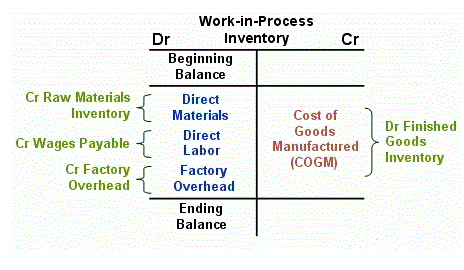- December 10, 2021
- Posted by: Zod Finishing School
- Category: Bookkeeping

You may be required to pay a lawyer retainer if you are securing the services of a lawyer or law firm that will be paid on an hourly or flat-fee basis. This could occur in divorce cases, estate planning, real estate, breach of contract claims or a wide variety of other legal cases. A security retainer is money that you deposit for the performance of future legal services.
- In general, a potential client will first undergo a consultation with an attorney where the prospective client will outline their legal issues.
- But, your retainer guarantees the lawyer or firm will be there for you if you require their assistance.
- Navigating the financial terrain requires agility and foresight, especially when it comes to the often-complex world of retainer fees.
- If the trial is resolved prior to requiring more than five hours of work, the remaining portion of the retainer would be refunded to the client.
- Earned retainer fee refers to the amount that is transferred from the special account to the attorney’s operating account after completing an agreed task.
Do retainer fees expire?
This type of arrangement is less common and typically used in special circumstances. Retainer fees are not exclusive to any one industry; they’re a versatile payment model that can be adapted to various service-based businesses. Understanding how different sectors use retainer agreements can help you decide the best way to apply this payment structure to your own business. Does it cater only to specific services, or is it a flat fee covering all potential services? Using a retainer fee, which is an upfront payment to secure What is bookkeeping professional services, provides a sense of commitment between the client and the service provider.
Examples of a Retainer Agreement – Retainer Fees Defined and Explained

Unearned retainer fees are payments that are made in advance by a client in order to acquire the services of a lawyer that have yet to be earned by the lawyer. When it comes to specific examples of professionals in finance and investment who commonly use retainer fees, legal services are most often cited. Law firms typically charge a retainer fee upfront to ensure that they have sufficient resources to cover their expenses throughout the case. Effective communication and preparation during negotiations can save you time and money while ensuring a successful outcome.
Access to Expertise – Advantages of a Retainer Fee
This financial security enables them to dedicate appropriate time and attention to each client’s matters without concerns about payment. From the attorney’s perspective, retainer arrangements offer several advantages that benefit both the practice and client relationships. Before signing a retainer agreement, review it carefully and ask questions about any terms you don’t understand. You may also want to compare agreements definition of retainer fee from multiple attorneys to ensure you’re getting favorable terms. Here are some recommended steps for determining what you’ll charge your clients on retainers.
- A retainer fee refers to a sum of money paid upfront to secure the services of a professional, such as a consultant, freelancer, or lawyer, on a project or ongoing basis.
- The majority of bar associations prohibit attorneys from charging a retainer fee that represents more hours than a case is likely to require.
- When you pay a general retainer, you still must pay separately for any legal services you actually need.
- They also provide peace of mind that the client has dedicated legal representation when they need it.
- As mentioned above, a well written attorney fee agreement will outline both how a retainer fee is used, and how the retainer fee is collected.
These proactive measures ensure that both clients and service providers can navigate financial discrepancies smoothly, maintaining trust and service continuity. Bookkeeping, preparing tax returns, and making financial statements are all examples of regular tasks that retainers could cover. Retainers not only help the client budget for accounting services but also help the client budget for accounting services. When the retainer balance gets low, the lawyer may request a replenishment to ensure continued representation.

- It acts as an assurance to the attorney that they will be paid for their services and signifies a commitment from the client, ensuring the attorney’s exclusive dedication to their case.
- This could occur in divorce cases, estate planning, real estate, breach of contract claims or a wide variety of other legal cases.
- For instance, a seasoned attorney with a specialized practice might command a higher hourly rate than a general practitioner.
- This estimation should be based on past experiences with similar projects or clients, taking into account any unique aspects of the current engagement.
- After the financial shakeups caused by events like Brexit, many firms had to revisit their retainer agreements to adapt to the new economic landscape.
As mentioned above, an attorney fee agreement is a written contract that includes the total amount of any retainer that is needed to secure an attorney’s services. Similar to any other major payment or purchase, lawyer retainer fees should always be enacted through a written retainer fee agreement. The fee agreement will typically specify a retainer fee, which the lawyer will collect upfront before executing the contract for legal services and beginning work on the client’s case. Once collected, the lawyer will typically place the retainer fee in its own distinct account, and then bill the client against the retainer as the attorney renders legal services. For agencies or clients reluctant about using a retainer fee structure, several alternatives exist. One popular option is a flat fee, where the service provider charges a specific amount for a defined service, offering predictability without the need for a retainer account.

This proactive approach ensures that both parties remain on the same page, minimizing the risk of misunderstandings. Understanding the nuances of retainer fees is crucial for anyone engaging in long-term professional relationships. This knowledge helps in making informed decisions about financial commitments and service expectations.

Will additional work be billed at an hourly rate, or will a new retainer be required? Only after the client has been invoiced does the lawyer transfer the amount earned from the trust account to their firm’s business account. For example, if a client pays a $5,000 retainer and http://rikuri.s1007.xrea.com/wp/2023/11/21/how-to-record-a-property-settlement-statement-in-a/ the first month’s invoice is $1,500, the lawyer will move that $1,500, leaving $3,500 in the trust account.
